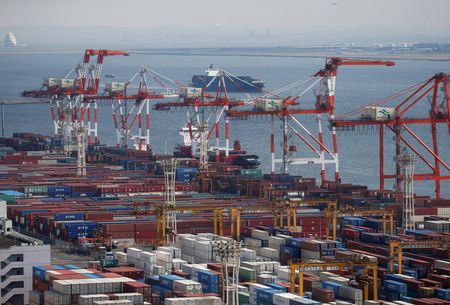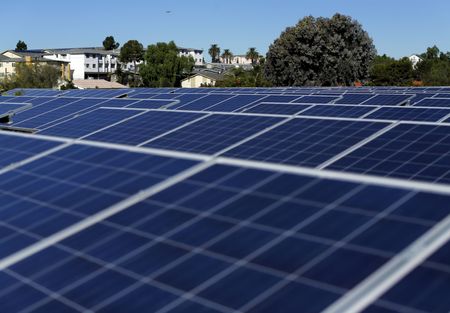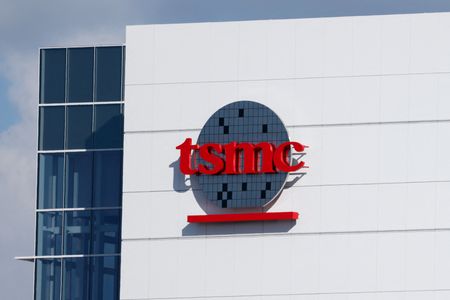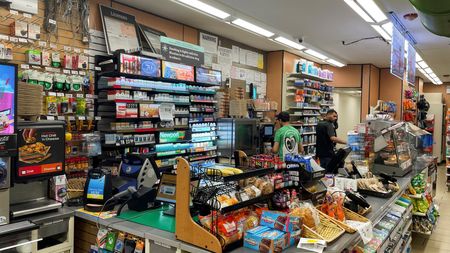By Makiko Yamazaki
TOKYO (Reuters) -Japan’s exports fell for a second straight month as sweeping U.S. tariffs took a toll on the country’s manufacturers, with its fragile economy exposed to greater risks from the global trade war in coming months.
Japan failed to clinch a deal with the U.S. before the July 9 expiration of the temporary pause on the country-specific tariffs after it focused on eliminating the existing sectoral 25% tariffs on automobiles, a mainstay of the export-reliant economy.
Washington now plans to impose tariffs of 25% on Japanese imports, unless a trade deal is struck by August 1.
“The tariff impact is likely to intensify in coming months, when the tariff rate is finalised and Japanese companies begin to fully pass on costs to consumers in the U.S., which would hamper competitiveness of Japanese products there,” Daiwa Institute of Research economist Koki Akimoto said.
Exports from the world’s fourth-largest economy dropped 0.5% in June year-on-year in value terms, compared with a median market forecast for a 0.5% increase and a 1.7% decrease in May, the first decline in eight months.
Exports to the United States tumbled 11.4% in June from a year earlier, the largest monthly percentage decline since February 2021, dragged down by a 26.7% plunge in automobiles, a 15.5% fall in auto components and a 40.9% plunge in pharmaceuticals.
But the volume of automobile shipments rose 3.4%, indicating Japanese automakers are cutting prices on exported cars and absorbing tariff costs to stay competitive.
“Japanese automakers have so far kept production levels by sacrificing margins, so the tariff impact on their production activities has been limited,” Koya Miyamae, senior economist at SMBC Nikko Securities, said.
But Daiwa’s Akimoto said Japanese companies would be forced to raise prices eventually, as trade negotiations drag on and the yen stays relatively strong.
Japan exported 21 trillion yen worth of goods to the United States last year, with automobiles representing roughly 28% of the total.
Japan’s trade surplus with the U.S. in June fell 22.9% to 669 billion yen ($4.51 billion).
Exports to China were down 4.7%, the data showed.
Total imports grew 0.2% in June from a year earlier, compared with market forecasts for a 1.6% drop.
As a result, the trade balance stood at a surplus of 153.1 billion yen ($1.03 billion), compared with a forecast for a surplus of 353.9 billion yen.
U.S. tariffs are adding to pressure on the Japanese economy which is struggling due to lacklustre domestic consumption. Japan’s economy shrank in the first quarter as rising living costs hurt demand.
Prolonged uncertainties over the impact of the tariffs and the course of trade negotiations will likely force the Bank of Japan to keep focusing on downside risks to the economy and to put rate hikes on hold for the time being, analysts say.
($1 = 148.4300 yen)
(Reporting by Makiko Yamazaki; Additional reporting by Takaya Yamaguchi; Editing by Kim Coghill and Shri Navaratnam)










